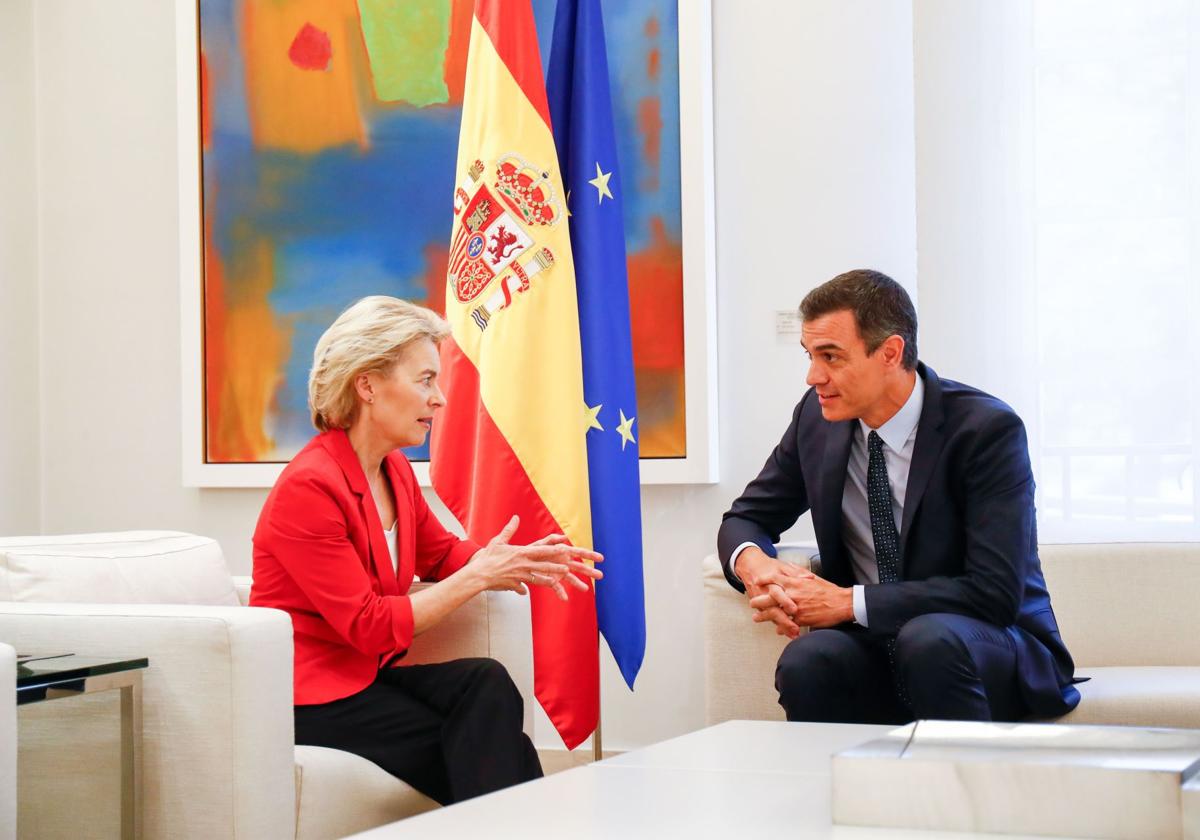
Join the armies
Ursula von der Leyen, president of the EU Commission, has endorsed the idea a defence force "with troops from all 27 member countries, working under a single flag with the same objectives"
Mark Nayler
Friday, 28 March 2025, 11:38
Sections
Highlight

Mark Nayler
Friday, 28 March 2025, 11:38
Pedro Sánchez thinks that the time has come for a European army. Alarmed, like other EU leaders, by Donald Trump's ambivalence towards the bloc, the Spanish prime minister this week called for a defence force "with troops from all 27 member countries, working under a single flag with the same objectives". It's a popular idea in Spain: a 2022 YouGov poll found that 64% of Spaniards supported the formation of an integrated European army.
Ursula von der Leyen, president of the EU Commission, has endorsed the idea; but Kaja Kallas, the EU's foreign affairs chief, doesn't think it's necessary. Kallas claims that the bloc needs 27 separate armies that can "effectively work together to deter our rivals". History seems to be on her side.
The idea of a European army was first proposed in the early 1950s, as a way of bolstering defences against the Soviet Union without rearming West Germany. It would have consisted of France, Luxembourg, the Netherlands, Italy, West Germany and Belgium (Francoist Spain was to remain shuttered to the rest of the continent for another 25 years). A treaty creating the European Defence Community was signed but never ratified: instead, West Germany joined Nato and the Western Union, a military alliance formed by France, the UK and the three Benelux countries in 1948.
Sánchez wants a European army for the same reason that France tried to form one in the 1950s: to protect Europe against Russian aggression. The underlying assumption remains: that a huge, multinational army would be more effective in combating an external threat than unilateral action by national governments (Kallas, as we have seen, disagrees).
Supporters of the idea can point to existing bodies such as Eurocorps and the European Maritime Force, both of which combine resources from several EU nations, and to the 414 Tank Battalion, formed in 2019 by the Netherlands and Germany.
What Sánchez proposes is on a different scale entirely. Ironically, he claimed this week that an integrated army should be reconsidered because the EU's 27 members, each of which has its own military priorities (or lack thereof), can't agree on a common defence strategy. But precisely the same problem would arise - and to a much greater extent - if the EU tried to form its own army.
That it hasn't done so, almost eighty years after the idea was first proposed, suggests that the obstacles are formidable.
Publicidad
Publicidad
Publicidad
Publicidad
Esta funcionalidad es exclusiva para registrados.
Reporta un error en esta noticia

Debido a un error no hemos podido dar de alta tu suscripción.
Por favor, ponte en contacto con Atención al Cliente.

¡Bienvenido a SURINENGLISH!

Tu suscripción con Google se ha realizado correctamente, pero ya tenías otra suscripción activa en SURINENGLISH.
Déjanos tus datos y nos pondremos en contacto contigo para analizar tu caso

¡Tu suscripción con Google se ha realizado correctamente!
La compra se ha asociado al siguiente email
Comentar es una ventaja exclusiva para registrados
¿Ya eres registrado?
Inicia sesiónNecesitas ser suscriptor para poder votar.